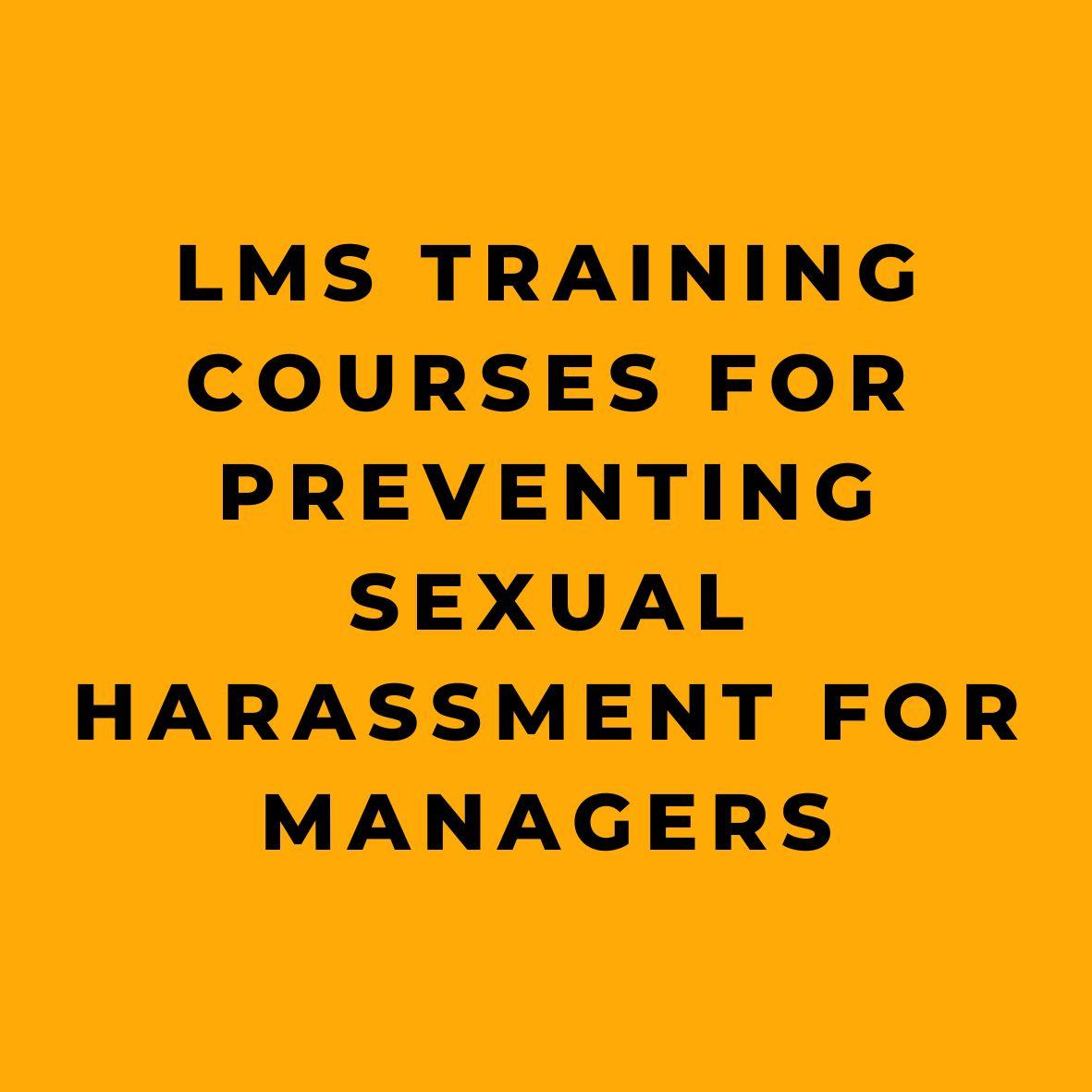Sexual harassment in the workplace is a serious problem that can damage the environment, productivity, and even the reputation of a company. And that’s where “Preventing Sexual Harassment for Managers and Supervisors,” part of the General Safety Series, comes in.
Did you know that the Equal Employment Opportunity Commission receives over 10,000 complaints about sexual harassment from U.S. workers every year? And studies show that this is likely just the tip of the iceberg. This type of behavior not only affects the victim but can create a hostile work environment and lead to decreased productivity, increased expenses, and even legal costs for the company. No company can afford to ignore sexual harassment.
As a manager or supervisor, it is essential to understand what sexual harassment is and how to prevent it from happening in your workplace. In legal terms, sexual harassment is a form of sex or gender discrimination that was made illegal by the Civil Rights Act of 1964. Most reported cases involve males harassing females, but it’s essential to remember that it can happen in any direction, including men being harassed by women or people of the same gender.
Sexual harassment includes unwanted sexual advances, requests for sexual favors, and any other verbal or physical conduct of a sexual nature that is unwanted or threatening. Less blatant types of offensive conduct, such as talking about sex, making off-color jokes, or commenting on someone’s appearance, can be regarded as sexual harassment when repeated. Victims of sexual harassment can suffer emotional, psychological, and even physical damage, leading to lower productivity and absenteeism.
As a manager or supervisor, you represent your company and must know the sexual harassment policy and follow it yourself. You’re also responsible for ensuring that everyone in your department understands the policy and what behaviors are and are not acceptable in the workplace. Make sure everyone has a copy of the policy, and encourage them to report any harassment they witness or experience. Remember, each employee is the judge of what they themselves feel to be disturbing, so take their concerns seriously.
If someone comes to you with a report about potential sexual harassment, it’s essential to respond systematically and keep good records. Start your own “paper trail” by writing up a summary based on their report and your conversation with them. Keep your notes legible and organized, and make sure that everyone involved understands that the investigation should be kept confidential. Remain objective and impartial throughout the investigation, and let yourself be guided by the facts.
Preventing sexual harassment in the workplace is a top priority for all companies. It’s crucial to raise employee awareness of sexual harassment and make it an ongoing effort. Hold team meetings and staff training sessions to discuss the types of abusive behavior that won’t be tolerated, and use your company’s sexual harassment policy to clarify what behaviors are acceptable and what are not. Encourage open communication and let your employees know that sexual advances are always inappropriate on the job.
In summary, sexual harassment is a serious issue that affects not just individuals but entire companies. As a manager or supervisor, it’s essential to understand what sexual harassment is and how to prevent it from happening in your workplace. Know your company’s sexual harassment policy and follow it yourself, raise employee awareness of sexual harassment, encourage open communication, and take all reports of sexual harassment seriously. Together, we can help make sure that your workplace stays harassment-free.
In today’s society, sexual harassment is a serious issue that affects many workplaces. As mentioned in the previous article on preventing sexual harassment for managers and supervisors, it is important for companies to have policies in place to prevent and address these situations. We provide valuable training products to help managers and supervisors identify and prevent sexual harassment in their departments. By implementing these training programs and taking action to prevent sexual harassment, companies can create a safer and more respectful workplace environment for all employees.
Did you know that the Equal Employment Opportunity Commission receives over 10,000 sexual harassment complaints from U.S. workers each year? And that’s probably just the tip of the iceberg.
That’s where our “Preventing Sexual Harassment for Managers and Supervisors” training products come in. These products provide managers and supervisors with the information they need to identify situations that could lead to sexual harassment, prevent harassment in their departments, and deal with it effectively if it does occur.
The “Preventing Sexual Harassment for Managers and Supervisors” training products come in a variety of formats, including new “Micro-Learning” and full-length online courses, as well as DVDs and interactive CD courses. All of these products cover important topics that are integral to employees’ understanding of sexual harassment issues.
Topics covered in these products include what sexual harassment is, company policy and offensive behavior, sexual harassment in your department, handling a report of sexual harassment, the fact-finding process, and more. These products are available in both English and Spanish.
The “Preventing Sexual Harassment for Managers and Supervisors” MicroLearning curriculum includes the following 3-5 minute courses: “What is Sexual Harassment?”, “Company Policy and Offensive Behavior”, “Sexual Harassment in Your Department”, “Handling a Report of Sexual Harassment”, and “The Fact-Finding Process”.
It’s crucial for managers and supervisors to understand what sexual harassment is and to know how to prevent it from occurring in their departments. Sexual harassment can damage a company’s reputation, lead to legal costs, and even cause employees to leave. Managers and supervisors need to be aware of what constitutes sexual harassment and to have a solid understanding of their company’s sexual harassment policy.
If an incident of sexual harassment does occur, it’s important for managers and supervisors to handle it appropriately. This includes taking reports of sexual harassment seriously, keeping them confidential, and conducting a thorough investigation. Managers and supervisors should remain impartial during the investigation and consult their company’s sexual harassment policy and HR department to determine whether harassment has occurred and what sort of disciplinary action, if any, is required.
By understanding what sexual harassment is and how to prevent it, managers and supervisors can help ensure that their workplace remains harassment-free.










